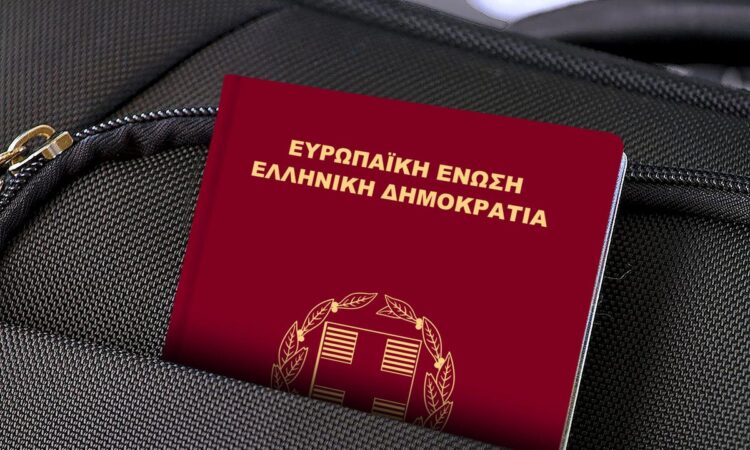
Greece Passport
getty
Starting this month, the cost of a Greek golden visa — obtained by investing in Greece — has doubled from €250,000 (among the lowest in Europe) to €500,000 in the most popular areas of the country.
After the official announcement of the increase last year, and a postponement of the application date planned for May but pushed back to this month, the Greek government started the modified visa-by-investment program granting five-year residency rights to foreigners putting a minimum €500,000 into capital transfer, business or property acquisition.
Buy while you can
The announcement last year of the planned Greek increase, in addition to Portugal’s recent decision to place limits on its highly popular golden visa scheme, triggered a rush of interest. Thousands applied for golden visas — particularly Americans and Chinese investors — by buying property in Greece before the increase, which was one of the government’s reasons to delay the measure until now.
Greece introduced its golden visa program in 2014, granting a five-year residence permit that could be renewed to third-country nationals purchasing real estate worth at least €250,000.
Data from the Immigration and Asylum Ministry reported by Greek City Times shows that the golden visa program contributed nearly €1 billion to the Greek economy in the first five months of this year.
“This financial boost can be attributed to Portugal discontinuing its own residence-by-investment scheme and Greek authorities postponing the threshold increase,” the paper reports. “During the January-May period, there were 3,900 applications for real estate purchases for residence, compared to 1,444 in the same period last year.”
The growing interest to buy before the new measures entered into effect provoked a backlog of more than 5,500 visa-by-investment applications pending approval. From May, 2022, to May, 2023, Greek authorities fielded a total of 8,351 applications, 35% of them already approved.
The total value of properties sold during that period reached €975 million, three times higher than the €361 million in the previous year.
Nearing the end?
The Greek decision didn’t make the European Union happy as it has been intensifying the pressure on member countries to scrap all golden visa programs. which were created globally in an attempt to attract foreign investment, boost tourism and revive the real estate market.
“Getting the right to live and work in another country can be a long and difficult process,” Euronews explains. “But that’s not always the case for those with money to spend.”
For countries in the E.U., it also means gaining access to many of the benefits of being a resident of the bloc — including free movement between countries and free access to Schengen zone countries.
Undemocratic risk to security
For the European Commission, it’s “undemocratic” to enable wealthy foreigners to ‘buy’ the right to residency — sometimes without even a requirement to live in the country — and has transformed into “a risk to security, permitting money laundering, tax evasion, terrorist financing, corruption and infiltration by organised crime that is incompatible with E.U. norms.”
The E.U.’s effort to crack down on this combined multi-billion euro industry has gained favor especially before the security risk represented by the war in Ukraine.
Transparency International has also called for the end of golden visa programs that “have turned European Union (E.U.) citizenship and residency rights into a luxury good: with enough money, anyone can buy in. This is a particularly attractive prospect for criminals and the corrupt – and numerous scandals have proven they are taking advantage. These E.U. golden passport and visa schemes are not about genuine investment or migration – but about serving corrupt interests.”
The organization proposes that golden visa schemes be regulated with adequate checks in place and recommends that governments review previously-awarded golden passports and visas: “The European Commission should oversee the process of revoking citizenship or residency from those who should have never received it in the first place.”
Housing crisis
Such schemes have also been at the root of serious housing crises in the countries that still offer them. Increases in housing costa and the effect on local residents were among the main reasons specified by the Portuguese government for modifying its golden visa program.
Although offered not just for investment in the real estate market but also for entrepreneurial initiatives, 89% of residence permits-by-investment are given for the purchase of real estate.
In Portugal’s case, the golden visa has been revoked for real estate investment but still holds for foreign investors who want to develop a project. Applications will be considered according to the economic, social, scientific, technological and cultural relevance of the investment and the capacity to create new jobs in the country.
Under Greece’s new increased investment-for-visa program, third-country nationals can only purchase one property for the set amount.
The new minimum value at the time of purchase will apply to a single property in the northern section of the country, the central and south sectors of Athens in the Attica Region, the islands of Mykonos and Santorini and the Municipality of Thessaloniki.
The previous minimum value of €250,000 will be maintained for the rest of the country.
Follow me on Twitter or LinkedIn. Check out some of my other work here.






